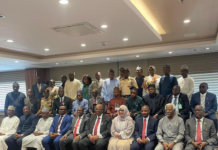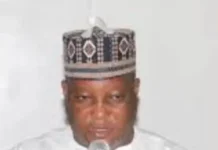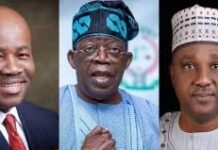Fuel Subsidy Removal in Nigerians’ Best Interest – Malagi
By Nafisat Bello
The Federal Government has again defended its removal of subsidy on petroleum despite the cost of living and inflation soaring in the aftermath of the move.
Nigeria had for years swapped crude for gasoline that it then subsidies for its domestic market, causing a huge drain on revenue, and foreign exchange and contributing to ballooning debt.
But during his inauguration in May, President Bola Tinubu ended the long-running arrangement to support fuel prices in Nigeria, the continent’s most populous country and biggest economy.
The move saw the price of the commodity move from N190 to over N600 per litre with the cost of living ballooning afterwards. But the Minister of Information and National Orientation Mohammed Malagi on Thursday argued that the removal of the subsidy was in the best interest of the country.
Read Also:
“You’re premising your argument on the fact this problem just started yesterday. The foundation of our economy had taken a beating a long time ago. The substructure of our national economy has been one that cannot hold a meaningful substructure on it,” he said while featuring on Channels Television.
“So, it is important that Nigerians recognise that the President and his team would have to go back to reset that and that is why from day one, he said, ‘Look, subsidy issue has to go’. He had to expect that there would be this pain, of course. He anticipated that Nigerians would encounter some difficulties. But it would be worse if that subsidy did not go. It would have been difficult to carry out any meaningful development. We needed to free up resources.”
The Minister of Information and National Orientation Mohammed Idris during an interview on Channels Television’s Sunrise Daily on Thursday, February 1, 2024.
The Federal Government had argued that the impact of the subsidy was not felt by the masses as some select persons were benefiting from it.
According to the minister, security agencies are, however, working to bring the culprits who are referred to in most quarters as “subsidy thieves”.
“Of course, everybody is being investigated. Security agencies are doing their jobs in that direction,” he said.

















